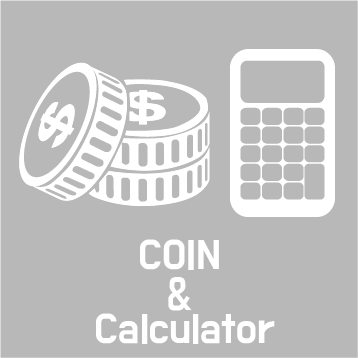Is there life after sanctions? 10 questions to a financial expert
Russia's disconnection from SWIFT, toll on the regular folks wallets, exchange rate (fate? mate? hate? - options may vary), faxes, blockchain, cash bags.
As promised, I post here an expert part of the series "What the fuck is going on?!" I post it with delay, because as old Hemingway said, one should write drunk, but edit sober. In this post, I ask stupid and superficial questions to a smart and experienced financier, who, due to his venerable age and high position in one of major banks, wished to remain anonymous. For convenience, I’ll call my interlocutor Simon, highlight my questions in bold, Simon's answers, respectively, ehhh... not in bold, some lyrical digressions – in italic.
So, what's going on? What will happen to the exchange rate, what’s your forecast?
It's like in a joke:
- Doctor, will I die?
- Of course!
You can't make exact calculations here. But there are probabilities. In my opinion, the probability of welcoming the new year with the exchange rate of 85 RUB per USD is... let it be, 85%. Long-term prognosis is even worse. And it's not just (and not that much) due to sanctions.

During our discussion I will advise you a few books that can be of interest to your community for general development and a deeper dive into the topic.
The economy is somewhat interwoven with science, culture, and religion - with everything.
The reason why Jared Diamond wrote his famous "Guns, Germs, and Steel: The Fates of Human Societies" is the question asked by Papuan Yali: "Why did you, White, accumulate so much cargo and brought it to New Guinea, and we, Black, had so few of our cargoes? " I advise you to read this fabulous book about the destinies of human societies first and foremost.
The blood of economy is money. And money is not only (and not that much) its well-known functions, such as measure of value and means of circulation, payment and accumulation. If we look at it a little more in scale, money is a social technology, a regulator of public relations, an instrument for smoothing and eliminating conflicts that arise in society.
What else can money express or signify (a cowrie shell, a Roman sestertius, a dollar bill, an overdraft limit on the card)? Relations of duty. How many goods does the store owe you, how much do you owe to the bank. How many people can you hire, how much does your time cost. Money is a special kind of a loan, money exchange is a way of paying off debts, and cash is a symbol of credit relations (Felix Martin's "Money: The Unauthorized Biography--From Coinage to Cryptocurrencies" is an excellent book on this issue). Non Aes, sed Fides - "Not metal, but trust". Monkeys, by the way, very quickly learn to "play with money": first they change different fruits and nuts to tokens of appropriate colors, then they begin to save tokens and change them, for example, to sex.
We dwelled on sanctions. How strong is the effect of the measures that have already been taken on the Russian economy? What will happen next?
The most painful are sanctions to the supply of technologies. They result in the aging of the infrastructure. This is factor # 1 in curbing growth. The technology gap in a daily changing world is equal to a death sentence. Factor #2 is average oil prices. Recovery to $70-80 per barrel means stagnation for Russian economy, a downfall to $40-50 is a severe crisis. Russian ruble is a commodity currency. Development in the long-term period is not visible due to the demographic pitfall (factor # 3). The population is aging and decreasing, even the migratory influx is not a salvation. Factor #4 is, curiously enough, innovations: the share of capital in GDP is growing, the share of labor is falling down. There will be fewer and fewer jobs in the conventional sense. Retirement-age increase is inevitable, as well as the growth of tension in society. But among the immediate shocks is the disconnection from SWIFT, that is probably the most significant and the least delusive problem so far.

What is SWIFT by the way?
SWIFT is a global payment system. It is called global because it is the oldest (founded in 1973), relatively fast and at the same time not the most expensive, quite safe, but what is most important - it is familiar. It is the natural part of the financial world. One can say that SWIFT is a form of consensus (that is, trust) in the field of international payments.
SWIFT is the mark of international trade, and its disconnection will, in the first place, have an impact on Russian foreign trade.
The domestic market dwindles, the average purchase size decreases, people live at the cost of consumer loans - this is not what the economy can benefit from.
Here is once again time for a short lyrical digression:
Why do some currencies become cheaper, while others become more expensive? What influences the rate change? Why does your purchasing power change?
Everything matters: the success rate of the economy at large and by individual industries, the explored reserves of mineral resources, technological breakthroughs and scientific discoveries, even sporting events!
But what is more, of course, is the impact of the actions of regulatory authorities. The task of central banks is to keep the relative balance between their currencies and others. And this is done by the law of supply and demand: if the number of national currency unit decreases, it will become more expensive.
Thus far, everything is simple.
Rates on operations of central banks, discount rates and refinancing rates are the main tools. If the central bank provides other banks with liquidity at high price, the national currency strengthens, but interest rates on loans also grow. The central bank "prints money" - the economy receives a boost, but the monetary unit weakens. It's still simple, the unity and clash of opposites is already visible.
When the scale changes, and from our own pocket we move to global calculations, payment systems appear on the scene. That same SWIFT is also a way of making payments and transferring information. Time-tested, reliable, generally accepted method.
it is important in our case, because SWIFT is equal to international trade.
RUB is a commodity currency, and for this reason the hypothetical disconnection from SWIFT cannot be treated by any kind of import substitution.
Can Russia be really disconnected from SWIFT?
Yes, technically it is quite possible. And, probably, will soon take place. Per totality of "sins": Crimea, Donbass, Boeing crash, presidential elections in the US, Syria, Salisbury... this list can be continued for a long time. SWIFT will resist this to the utmost. In 2014, they said that Society for Worldwide Interbank Financial Telecommunications (SWIFT) is a neutral global company, which would not take any unilateral decisions to disconnect anyone. And only the relevant decision of the European Union can force SWIFT to exclude Russian financial institutions from its lists. This will not only result in loss of SWIFT incomes, but most notably will dent the reputation and status of the global payment system. Can the European Union take such a decision? Yes, and one can imagine a whole chain of events that will lead to this. Escalation, zero tolerance, provocations, stupidity and incompetence are excellent conductors in such cause-and-effect chains.

Has this happened before (disconnection from SWIFT)?
Yes, it happened. Iran was disconnected in March 2012. At first they sent many warnings, then postponed it, but after the US Senate imposed sanctions against SWIFT, Iranian banks were turned off. What followed? In the beginning there were schemes of settlements through Turkey or the Emirates. The duration of international payments increased from three days to a couple of weeks. But then they've pulled the plug on this too, and the only option left was to carry the cash in the suitcases. International payments are hard to maintain. Iran switched to barter, cross charge and that sort of thing. Despite all the statements that everything will be ok and that there is still life without SWIFT, Iran's oil exports decreased more than twice in a year. And this had an immediate impact on the rate of the Iranian rial.
Are there any alternatives? Carry cash in bags?

Of course, all banks are now getting ready for a worst-case scenario: for instance, in our bank we recently audited written-off equipment, namely outdated faxes, which quite likely will have to be dust-off soon.
What else: we created the Bank of Russia's Financial Messaging System (FMS) and the National Payment Card System (NPCS). But even if we do not take into account the quality of the domestic tools implementation - all these measures are related to domestic market, which cannot pay for all the extracted oil.
Approximately 70% of world commodity turnover is carried out in dollars. The sanctions announced for November may leave about one third of Russia's foreign trade, but this is at the worst.
Sanctions in their most severe form involve bans on dollar transactions for Russian banks and even blocking the accounts.
As far as I know, some banks (Mosoblbank (Moscow Regional Bank), RBA (Russian Banks Association), etc) are considering rather unexpected solutions, such as blockchain project KVANTOR, which, according to the information provided on their website, promises "the fight against centralization and global control, creation of banking network in such countries as China, Russia, countries of Southeast Asia and the Middle East, in order to reduce the excessive financial influence of the United States. Arranging direct payments in national currencies while using smart contracts to secure money. Making an evolutionary step towards the alternative of SWIFT payments and remaining within the existing banking system".
How exactly this "evolutionary step" will be done, remains a mystery. I would rather bet on cash bags. However, even the Central Bank, with all its conservatism, regularly casts a glance at crypto-currency.
https://www.youtube.com/watch?v=QlAHU0Kk0vw
Are there any positive scenarios?
Sure they are! The only thing is they are far less likely to happen, and require the occurrence of such events and the making of such decisions that are contrary to what is happening right here, right now.
Ok, how about to end with a small series of common questions in a "brief" format?
Go on!
What happens in case of a default (1998 format)?
- tax collection is falling down;
- the rate of inflation is growing massively (say, at 3 times);
- massive devaluation of the ruble (almost at 4 times);
- revenues of the treasury, citizens and business are depreciated;
- devaluation makes imports too expensive, but the country can deprive benefits from this only in the presence of "alive" small and mid-sized businesses.
What should a specialist with a salary of 100,000 rubles do? Demand a pay rise? Save money? Buy dollars?
Businesses will not get any better and salaries will not grow. Honestly, I would advise you to prepare for shocks rather than to a pay rise. It means yes, save up. Yes, buy dollars for at least 50% of what you manage to save. In general, this is the basics of financial security and responsibility.
Is it worth borrowing a ruble loan for speculative purposes?
Banks know where their interests lie. In rates, commissions, banking support, in changing conditions. I think the honest answer is "No, it's not worth it."

What will happen at the real estate market (sale / rent)?
Prices will not rise, even in rubles, even in Moscow. I'd rather tend to believe that the real estate (both purchase and rent) will become cheaper, simply because of the impoverishment of the mainstream population.
What else would you recommend us, financially illiterate, as Mr. Tinkov (a famous Russian businessman) put it, "post-hipsters" to read?
For example, "Economics: The User's Guide", by Ha-Joon Chang, "Antifragile: Things That Gain from Disorder" and "Skin in the Game: Hidden Asymmetries in Daily Life" by Nassim Nicholas Taleb – those are excellent books for our times.
This article caused a wide response in telegram channels, below is an example of public reaction with the greatest number of reposts:
Folks on vr.ru discuss how we should live, when everything goes belly up (and everything will really go belly up, we checked this out).
In general, this material is worth reading, but on behalf of our editorial team "Jury, online!" we'd like to add:
Our honoured anonymous financier Simon expresses cautious skepticism about the project KVANTOR:
"Sanctions in their most severe form involve bans on dollar transactions for Russian banks and even blocking the accounts.
As far as I know, some banks (Mosoblbank (Moscow Regional Bank), RBA (Russian Banks Association), etc) are considering rather unexpected solutions, such as blockchain project KVANTOR, which, according to the information provided on their website, promises "the fight against centralization and global control, creation of banking network in such countries as China, Russia, countries of Southeast Asia and the Middle East, in order to reduce the excessive financial influence of the United States. Arranging direct payments in national currencies while using smart contracts to secure money. Making an evolutionary step towards the alternative of SWIFT payments and remaining within the existing banking system".
How exactly this "evolutionary step" will be done, remains a mystery. I would rather bet on cash bags. However, even the Central Bank, with all its conservatism, regularly casts a glance at crypto-currency".
We'd like to remind to Mr. financier that KVANTOR is one of a few projects with domestic roots that conducts fundraising with the use of the escrow service Jury.Online, that is, de facto agrees to receive financing in batches through a smart contract, as long as the milestones are fulfilled, and in case of disagreements with investors is ready to involve independent arbitrators in resolving the dispute!
We'd also like to say that it is almost four years by now since the food antisanctions where imposed, yet you can't smell any worthy domestic Parmesan, Camembert or Hamon. We must admit that the things you actually can smell are quite different.
Let us at least give a chance to Russian blockchain. In the long run, if there is anything we really know how to do - it is cash-out.
- Daily Coin News prioritizes the voice from the scene over others(news@dailycoinews.com) -
[copyrightⓒ 2018 All rights reserved by Daily Coin News]
Leave a Comment
Write As a Reporter




Coin 시황



















임은교 2018-11-16 14:55
잘 읽고 갑니다.
전수미 2018-10-31 19:35
SWIFT